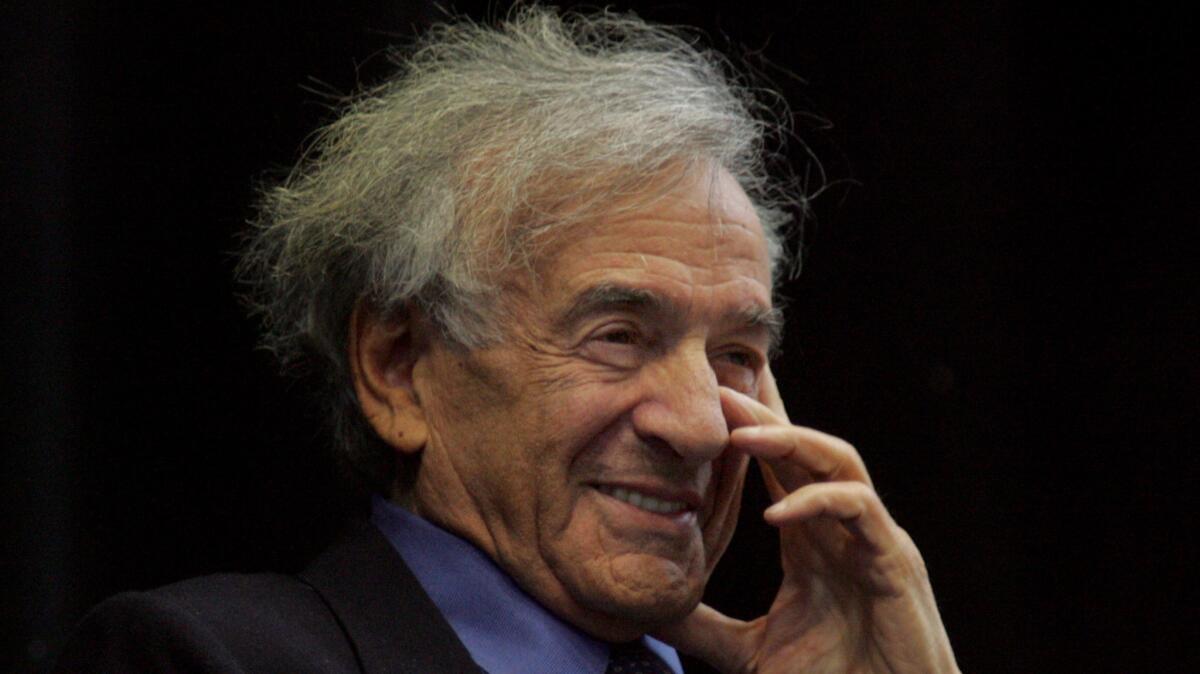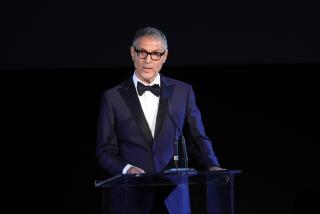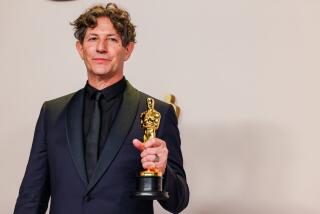From the Archives: Holocaust voice Wiesel wins Nobel Peace Prize

Elie Wiesel, who survived the Nazi Holocaust to become the voice of its victims and a champion of dignity for all people, was named winner of the 1986 Nobel Peace Prize today.
The Norwegian Nobel Committee praised the naturalized American author as a spiritual leader in an age of violence and hatred.
“Wiesel’s commitment, which originated in the sufferings of the Jewish people, has been widened to embrace all repressed peoples and races,” its citation said.
Wiesel, 58, lost his parents and younger sister in Nazi death camps during World War II. He has chronicled the suffering of the Jews under Hitler and their problems in the Soviet Union today.
‘Not Going to Change’
“I have devoted my life to a certain cause, the cause of memory, the cause of remembrance, and now I feel that maybe I will have a better opportunity to say the same words--I’m not going to change now--for more people,” Wiesel said in New York, where he lives.
“I owe something to the dead. . . . That was their obsession, to be remembered. Anyone who does not remember betrays them again.”
In 1944, Wiesel was among 15,000 Jews deported by Germans and Hungarian fascists from his native town of Sighet in what is now Romania. It was one of the last great deportations in Hitler’s extermination of an estimated 6 million Jews.
At Auschwitz
The youth’s mother and younger sister died in the Auschwitz concentration camp and his father died in Buchenwald. He was separated from two older sisters at Auschwitz and did not learn that they survived until after the war.
“Until the mid-’50s, I refused to talk. I was scared to talk. I kept totally silent,” he said at a 1984 memorial service in Sighet. “Then I said that we survivors have the duty to talk, and thus writing has become an obsession. But I’m afraid I don’t say everything that should be told.”
Wiesel settled in France, where he studied literature, philosophy and psychology at the Sorbonne from 1948 to 1951.
Reported on U.N.
He also worked as a journalist, traveling to Israel to cover the foundation of the Jewish state for the French newspaper L’Arche. He was Paris correspondent for the Tel Aviv newspaper Yedioth Ahronot in 1952, and in 1956 reported for it on the United Nations.
Remaining in the United States, he applied for U.S. citizenship in 1956. The first of his nearly two dozen books, published in Yiddish in Buenos Aires that year, was called “And the World Has Remained Silent.”
A condensed version appeared in French as “La Nuit” and was published later in the United States as “Night.”
His book “The Jews of Silence; a Personal Report on Soviet Jewry,” appeared in 1966.
Wife Also a Survivor
In 1969, he married Marion Erster Rose, also a Holocaust survivor, and they have a son and daughter. He teaches a course in the literature of anguish at Boston University.
President Reagan presented Wiesel with the Congressional Gold Medal of Achievement on April 19, 1985, recognizing his leadership as chairman of the United States Holocaust Memorial Council.
More to Read
Sign up for Essential California
The most important California stories and recommendations in your inbox every morning.
You may occasionally receive promotional content from the Los Angeles Times.










